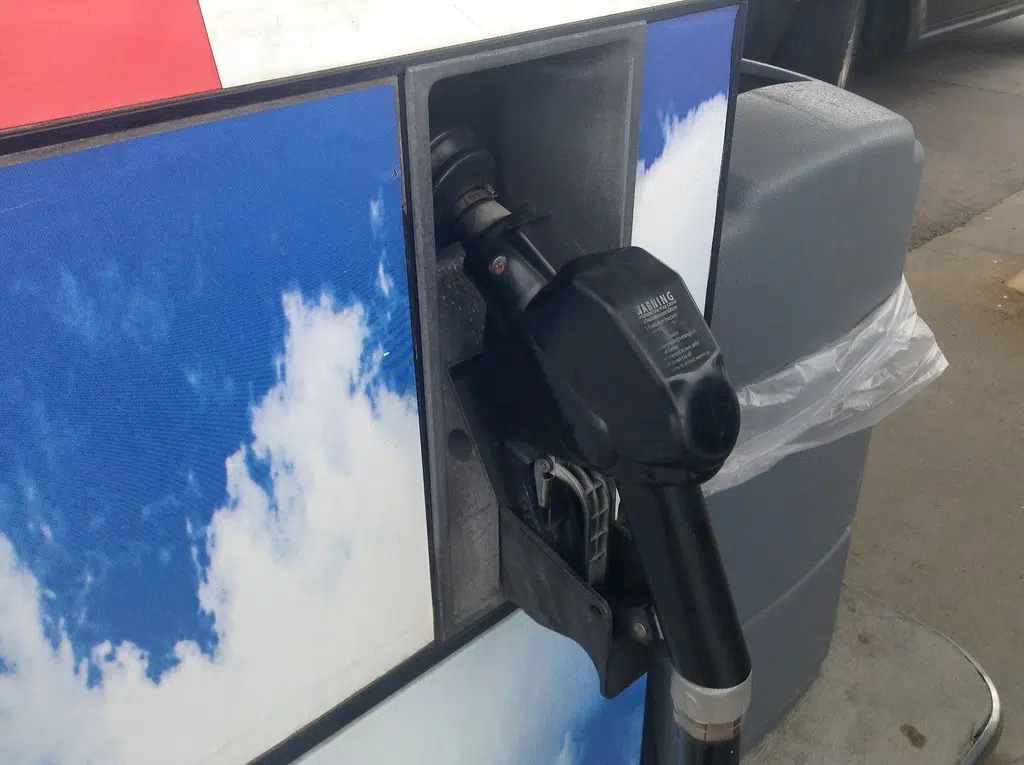Calls are growing for the New Brunswick government to help consumers cope with rapidly rising fuel prices.
The province’s premier says his government is looking at ways to do that, but any help could be weeks away.
Regular self-serve is nearly 24 cents per litre higher than this time last week after three separate increases.
Those who use diesel fuel are paying nearly 28 cents per litre more than they were a week ago.
Prices have risen so quickly that the Energy and Utilities Board (NBEUB) invoked its interrupter clause twice since last week’s regular weekly setting.
Interim Liberal leader Roger Melanson said the Higgs government needs to step in and find a solution to the “skyrocketing prices.”
“All options must be considered, and that includes temporarily reducing the provincial tax rate on fuel sales,” Melanson said in a news release Monday.
While that is one option being considered by the provincial government, Premier Blaine Higgs wants to see the feds step in.
Higgs said the most “straightforward” step would be for Ottawa to pause the carbon tax temporarily until fuel prices stabilize.
“That would amount to about 11 cents a litre,” Higgs said in a phone interview on Wednesday morning. “That would make a dent.”
Currently, the federal carbon tax adds 8.84 cents per litre to the price of regular self-serve. That is expected to increase to 11.05 cents per litre come April 1.
Higgs said he plans to raise the issue when the premiers meet with Prime Minister Justin Trudeau on Thursday.
From a provincial perspective, the premier said he has asked staff to look at the implications of lowering the provincial gasoline tax and HST added to fuel prices.
Higgs said they have already told him that higher fuel prices likely will not mean more tax revenue for the province as consumption will probably drop.
“We have a budget coming forward on March 22nd and it is a very healthy budget. … I’m cognizant of that and how we are able to continue our budget in the format it’s in,” he said.
Melanson said with two consecutive surpluses totalling nearly $1 billion, the government has the ability to act “and make life more affordable for New Brunswickers.”
“Their surpluses are in part due to the increase in tax revenue they receive, it’s time to give some of that back to New Brunswickers,” he said.
Higgs, however, said the province simply cannot move the surplus from the 2021-22 fiscal year, which ends March 31, to the upcoming 2022-23 budget.
“It’s not like money in the bank that you can carry over from one year to the next. As of April 1st, we start a new budget year, and the books are audited and that defines what the 2021-22 year looks like,” he said.
“What we put in for expenses this year [2022-23] has to be accounted for and has to be managed in this year’s budget, so our revenue has to match up with what we’re actually spending.”
Any changes to the provincial gasoline tax and HST added to fuel prices would be decided upon within the coming week, said Higgs, and would “ideally” be implemented by April 1.




